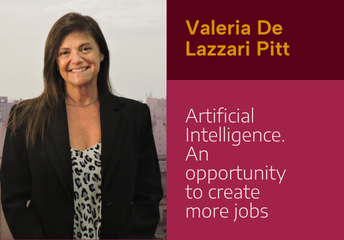We are currently in a challenging world that is constantly facing change. There is now a greater focus on the expectations, needs and demands of clients, the market, users, regulators, and standard setters.
Within this framework, it’s important to emphasize the role that us auditors have as actors in the community, confident in providing accurate information and therefore adapting our practices to continue generating credibility and support for our clients.
It’s been decades since traditional auditing, based on transactional revision and overall disinterest, ceased bringing added value and met set expectations by the organization. The dynamics and complexities of business create greater risks, so the methodology of auditing evolves in a way that attends to new demands and regulations.
Auditing based on risks was a shift in the focus on how to drive change within an organization. This methodology is based on a small understanding of the business and the industry, so it pushes the auditor to identify and listen to a business’ “drivers”. The vision that the auditor develops about a business or organization is integral and evaluates distinct factors that are affecting the business. This vision also involves an understanding of the business’ strategy navigating a changing environment. Within this market, the auditor’s planning stops being a generic and standardized process and instead it becomes tailored and personalized for each client and report.
Across the process of auditing, we’ve identified a few potential areas of risk (within administration, finances, operations, tax, etc.) and areas of growth including clients communicating their doubts which can help us anticipate problems and improve the process of auditing. By critically thinking and analyzing, we develop, along with the help of adequate technologies, a proper business audit.
The introduction of digital transformation in auditing firms has also become a part of the changing auditing methodology. New technological tools (i e data analytics, big data, robotics, machine learning, etc.) allow us to increase efficiency, productivity, and the quality of our service. With this it is possible to process the most amount of information in less time and obtain data that enables trend detection, patterns, and possible irregularities. Having these tools allows us to revise reports in real time without having to wait for access to certain information and generate greater synergy and communication with clients.
The complexity of talent
These changes also brought the need to build multidisciplinary teams. We auditors need to incorporate and use the help from professionals and specialists from other areas to evaluate the risks of a company. The auditing team today isn’t just made up of accountants specialized in auditing and accountability but is made up of specialists with diverse skill sets.
Lastly, human talent is crucial in the whole process of auditing. Identifying, incorporating, developing, training, and retaining talent is a whole other challenge that auditing firms face. Without innovative talent, it wouldn’t be possible to incorporate the changes in the auditing methodology, certain processes, and adopting digital transformation. Innovation is a part of the ever-changing culture within auditing firms.
The combination of a risk-based audit approach, introduction of new technologies, creation of multidisciplinary teams, and development of innovative talents are all aspects that auditing firms focus on. This is all in favor of improving the quality of our services, optimizing our own and our clients’ effort, doing the most efficient job, and generating the most value. We do this by maintaining focus on the ethics and commitments linked to our role in the community which is giving the public faith in the information we review.
*Associate of the department of auditing at SMS – San Martin, Suarez, and Associates.*
By: Silvina Contini


